Australian Rock: The Early Seventies
As the sixties drifted into the seventies, the split in the Australian music scene between ‘underground’ and ‘chart’ acts became even more pronounced. Go-Set, still the leading music publication of the day, acknowledged this fact by introducing an ‘underground’ supplement titled Core that featured long, analytical pieces about the ‘significance’ of major artists and styles.
The Go-Set Awards of January 1970 saw Doug Parkinson In Focus the most popular group, Johnny Farnham best vocalist and Axiom the best new group. Core announced its own awards, with best new group going to Spectrum (featuring Mike Rudd from the Party Machine), and prediction status awarded to heavy blues outfit Chain.
In slavish imitation of overseas trends yet again (Woodstock had been held 6 months previously), Australia’s first pop festival was held in January 1970 at Ourimbah, fifty miles north of Sydney. The line-up of acts included Tamam Shud, Doug Parkinson, Jeff St John, Max Merritt and the Meteors and Billy Thorpe and the Aztecs. The event was a success with Core reporting that the 8000 fans behaved ‘peacefully, exuberantly and humanely’ while singer Wendy Saddington waxed enthusiastically. ‘Ourimbah was simply a flash,’ she gushed, ‘a quick look at how life should be and a brilliant weekend proving that one can be so much happier without the ridiculous restrictions which society insists upon.’ Victoria’s first pop festival, at a site called Launching Place, wasn’t long in following (March 28-30) but unfortunately fell victim to the weather and was a wash-out.
A dispute between radio stations and record companies over provisions of the new Copyright Act (relating to airplay royalties) helped to further divide the two types of act in 1970. In April radio stations announced a ban on the airplay of British and Australian records released by the major record companies. The ban lasted until October and had two main effects. Firstly album sales doubled as audiences switched off their radios and record companies concentrated their marketing efforts in the LP area. Secondly Australian record companies, such as Fable, sprang up to release local versions of (unplayable) overseas hits. Fable dominated the singles chart in 1970, with the Mixtures hitting No 1 in September with their version of Mungo Jerry’s In The Summertime.
Single-oriented groups like Zoot and the Valentines found the going hard however. The Valentines split in August with Vince Lovegrove turning to writing for Go-Set and thence to Adelaide to host a TV pop show called Move. Bon Scott teamed up with four members of the Levi Smith Clefs in the new band Fraternity, who also made the move to Adelaide. The Zoot meanwhile adopted a new, heavier sound, culminating in the success of a gutsy, guitar-drenched version of the Beatles’ Eleanor Rigby in early 1971.
Flying Circus, one of the early lights of the country-rock movement, won the 1970 ‘Battle of the Sounds’ and used their Hoadleys prize to head for North America, basing themselves in San Francisco. Axiom meanwhile was already ensconced in a London studio recording a follow up to A Little Ray Of Sunshine.
The band that was to re-unify the Australian scene made their public debut at Melbourne’s T. F. Much Ballroom (a venue modelled on San Francisco’s Fillmore Ballroom) in November 1970, bottom of the bill to Chain (who, with Matt Taylor singing, had just incorporated Black and Blue (We’re Groaning) into their set) and Spectrum. Fronted by ex-Party Machine singer Ross Wilson, they were a fun act (Wilson wore cat’s ears and a tail at that first performance) doing obscure fifties hits, Buddy Holly songs and a smattering of originals. Yet by the end of the summer they were arguably the most popular band in the land. Their name? Daddy Cool.
‘It was obvious traditional rock had to come back about now,’ Wilson told Go-Set at the time. ‘You don’t have to think out what it means … you either rock yourself stupid dancing to it or you lean back and smile along with it.’
Daddy Cool were not even Wilson’s prime concern at the time. A sprawling aggregation of musicians (including most of Daddy Cool and Spectrum) under the title of Sons of the Vegetal Mother, who played long, improvised jazzy pieces in the style of Frank Zappa’s Mothers of Invention, held that honour. However, incredible audience reaction to Daddy Cool, including a scene-stealing performance at Adelaide’s first pop festival, Myponga, soon changed all that.
Their first album, Daddy Who? Daddy Cool spawned the classic single Eagle Rock in May 1971. It stayed at No 1 for seven weeks in the latter half of the year. The zany outfits and clowning demeanor of the band was offset by the precision of their vocal harmonies and their obvious songwriting and musical talent. They signed to one of the new independent record companies — Sparmac, which was run by former singing star Rob E.G. (real name Robbie Porter).
Porter oversaw a huge ‘hype’ campaign on the U.S. west coast which had the music industry expecting nothing less than the second coming of the Beatles. The campaign backfired when the Americans saw what they considered a ‘rock revival’ act. Although they undertook a couple more U.S. tours Daddy Cool was never able to regain the incredible initial momentum that had marked them as something special. Their final performance in August 1972 was released as a double live album, Daddy Cool Live (Wilson reformed the band briefly, with a slightly different line-up, in 1974).
Spectrum’s debut single, I’ll Be Gone, was also a huge success, reaching the top ten in early 1971. A plaintive acoustic blues (with a distinctive harmonica pattern) it was released on EMI’s new ‘progressive/underground’ label, Harvest. In a nod to the times their debut album Milesago was released simultaneously with the single. Previously record companies would wait until an artist or group had at least a couple of single hits under their belt before lashing out on the cost of releasing an album. Spectrum was a highly original act although they were prone, as many bands were at the time, to long directionless improvisations in the middle of songs.
Blackfeather, a guitar and harmonica-based outfit from Sydney, and Adelaide’s Fraternity both released versions of Seasons of Change in late 1971. Blackfeather had the hit in the eastern states but had to wait over a year for a follow up. When it came however, in the form of Boppin’ the Blues, it went to No 1. Another Sydney-based outfit the La De Das had a single hit with the bouncy Gonna See My Baby Tonight late in 1971. With the break-up of Zoot, Rick Springfield launched his solo career with the single Speak To The Sky. The Masters Apprentices also called it a day. Singer Jim Keays moved into pop journalism for awhile and with ex-Valentines singer Vince Lovegrove was one of the organisers of the Meadows pop festival outside Adelaide in January 1972.
The era of the pop festival really hit full stride with the advent of Sunbury. The first festival took place over the Australia Day weekend in 1972 and became an annual event. Located on a site outside the town fifty miles north of Melbourne, the festival provided the perfect vehicle for the loud, guitar dominated, blues/boogie bands of the time, like Billy Thorpe and the Aztecs and Chain. Although primarily an album oriented act, Thorpe and the Aztecs actually had a number 1 hit single in mid-1972 with Most People I Know Think That I’m Crazy.
With most of the major record companies happy to pump albums by overseas artists into the marketplace, while ignoring the wealth of talent under their noses, a number of small independent labels sprang up, particularly in Melbourne. One of these, Mushroom, grew out of a live agency, Australian Entertainment Exchange. Headed by the extroverted Michael Gudinski, the small label initially put out albums by progressive/underground bands like Madder Lake and Chain.
On the teen front, Sherbet’s fourth single, You’ve Got The Gun, released in November 1972, was a definite omen of things to come. Critic Adrian Ryan, writing in Roadrunner magazine some years later, said, ‘(it) gave notice that they were an exceptional commodity. No doubt could be expressed; with its tense stalking bass line and chill harmonies this was a super pop single, a magic moment that could never be quite recaptured . . . ‘ Sherbet kept plugging away, with Garth Porter and Clive Shakespeare writing the songs and Daryl Braithwaite providing the looks and voice to front them, and gradually the hits started coming. Cassandra went top 5 in late 1973 with Slipstream and Silvery Moon repeating the feat the following year. Image-wise the group adopted the ‘brickies in drag’ look common in the glitter rock period (epitomised by UK band Sweet). They also started a series of marathon cross-country tours, masterminded by their ambitious manager Roger Davies.
The Sunbury Festival 1973 was notable for the performance of Johnny O’Keefe, who wowed the 30,000 crowd with a spirited and dynamic performance, and the appearance of Lobby Loyde’s Coloured Balls, who were even louder, meaner-looking and nastier than Thorpie’s Aztecs.
As ‘progressive’ bands got heavier, the top forty seemed to get lighter and lighter. 1973 was a particularly inconsequential year on the singles chart, with such ‘showbiz’ acts as the Bootleg Family, actress Abigail, Barry Crocker, Jamie Redfern, Johnny Chester (with World’s Greatest Mum) and Sister Janet Mead (with her version of the Lord’s Prayer) all achieving significant chart success.
In 1974 Stevie Wright, the former Easybeats singer, launched a solo career in the best possible way; his debut single, Evie, produced by former Easybeats Harry Vanda and George Young, topped the chart. It was the beginning of a golden period for the Vanda and Young production team who went on to pen and/or produce hits for William Shakespeare (My Little Angel), AC/DC, John Paul Young and the Ted Mulry Gang. With the continuing success of Sherbet it also marked the beginning of the shift back to Sydney as the nation’s rock capital.
But that was all in the future. Melbourne still had its biggest, brightest flourish to play. In February 1974, a little known Melbourne band called Skyhooks changed lead singers. Out went Steve Hill; in came Graeme ‘Shirley’ Strachan. The band signed with Mushroom Records and Ross Wilson started producing their debut album. The first single from it, Living In The 70s, was released in August and went top ten in Melbourne. It was followed in October by an album of the same name. The Melbourne Observer hailed it as the ‘opening chapter of Australian rock history’ and certainly Greg Macainish’s lyrics about the contemporary urban landscape were novel and striking.
The band played the premiere episode of a new ABC-TV pop show called Countdown, talent co-ordination courtesy of Go-Set writer Ian Meldrum, and the Federation of Australian Commercial Broadcasters banned six of the ten tracks on the album. Skyhooks would create such an upheaval in the Australian music industry that things were never going to be the same again.
Main pic: Daddy Cool
∗ ∗ ∗ ∗ ∗
The early 70s playlist
∗ ∗ ∗ ∗ ∗
This is part four of my six-part potted history of Australian rock, covering the period from the fifties to the mid-eighties, first published in 1987 in Roll over Beethoven.
Initially produced by Fairfax Magazines, Roll over Beethoven was a project to provide resources for contemporary music education in secondary schools. It was later taken up by AUSMUSIC, which used it as the basis for its music education program.


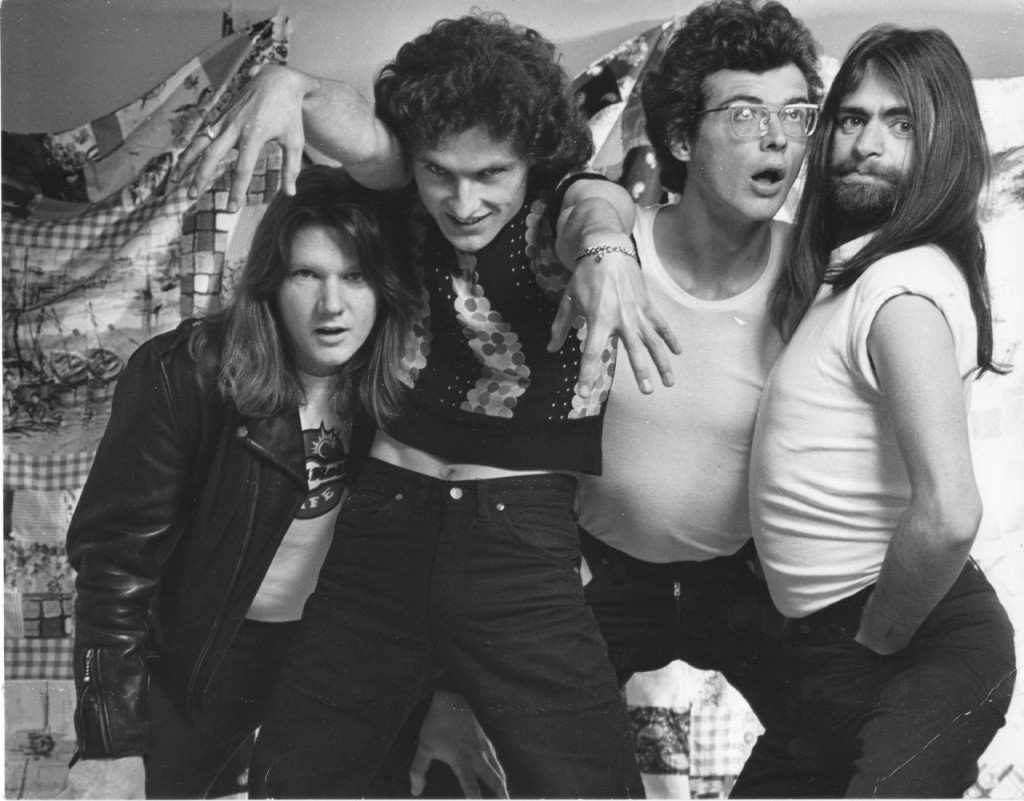
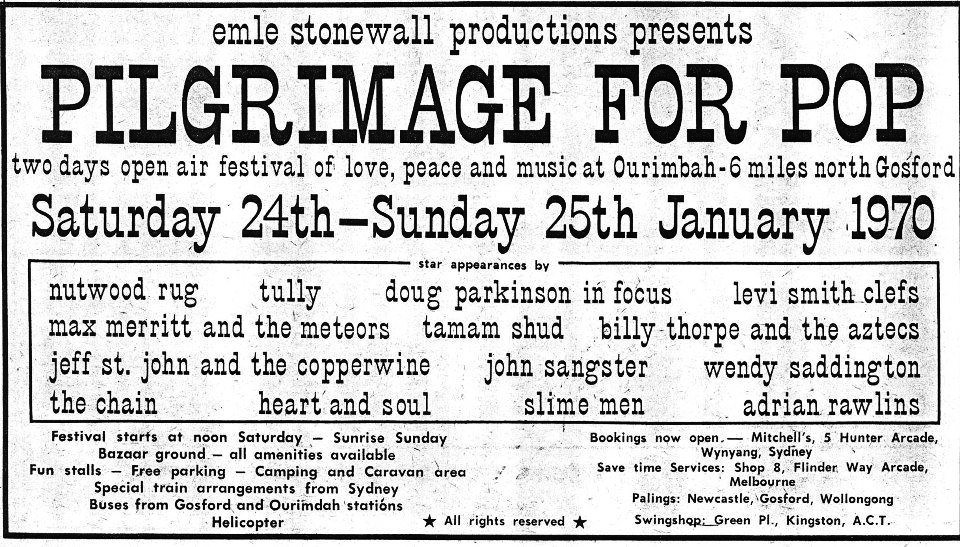
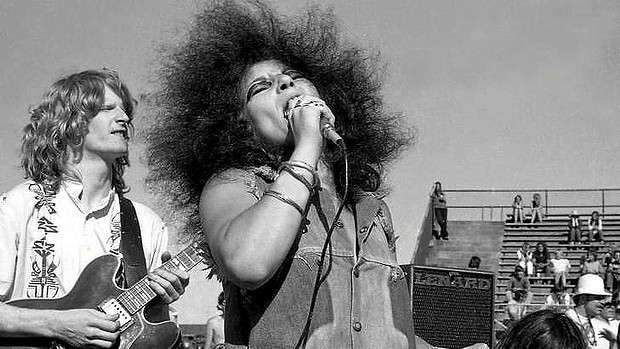


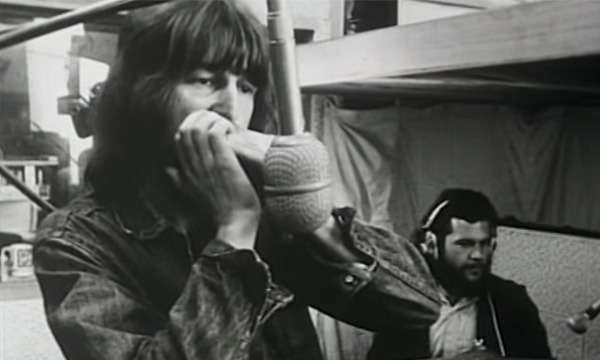


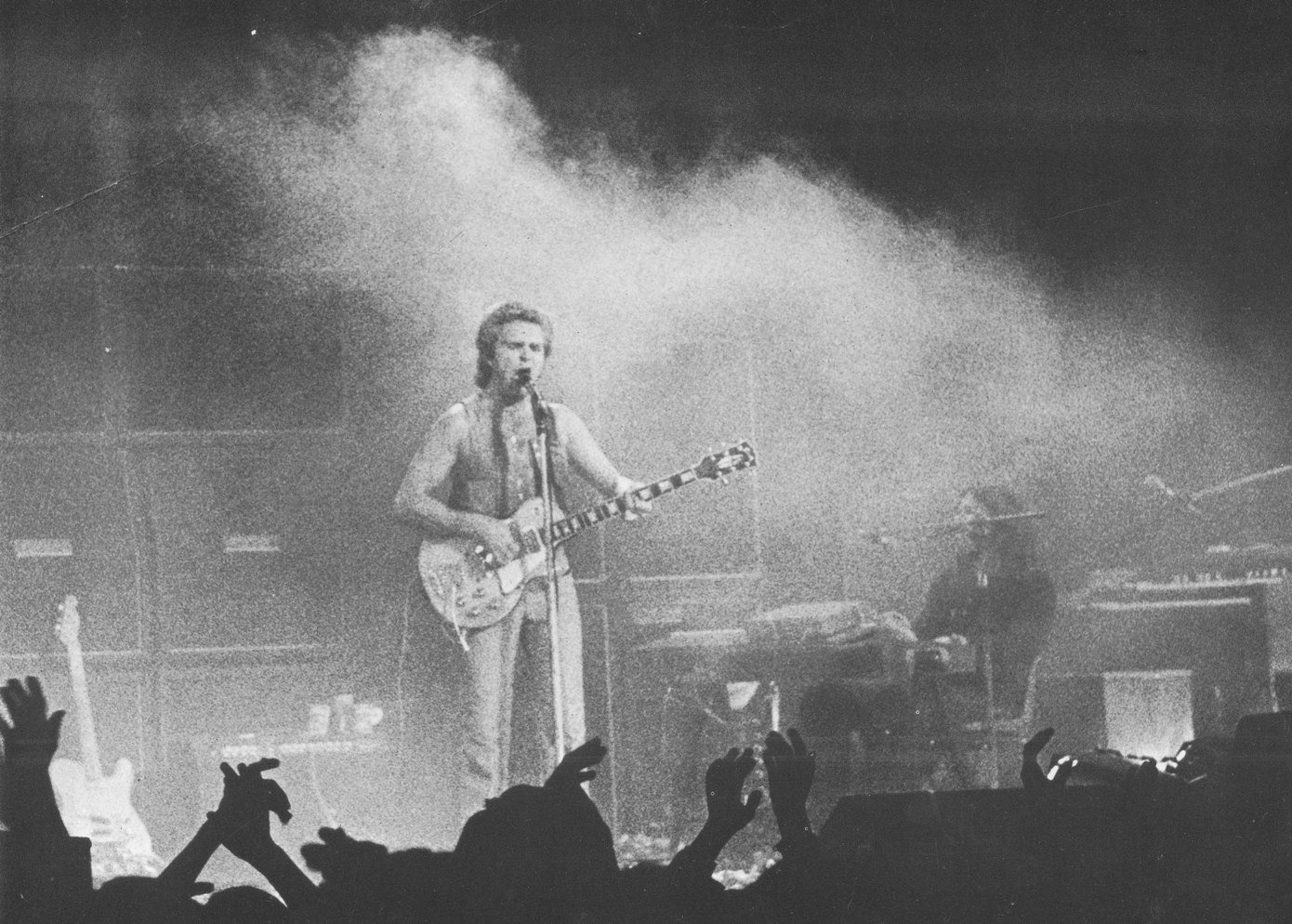

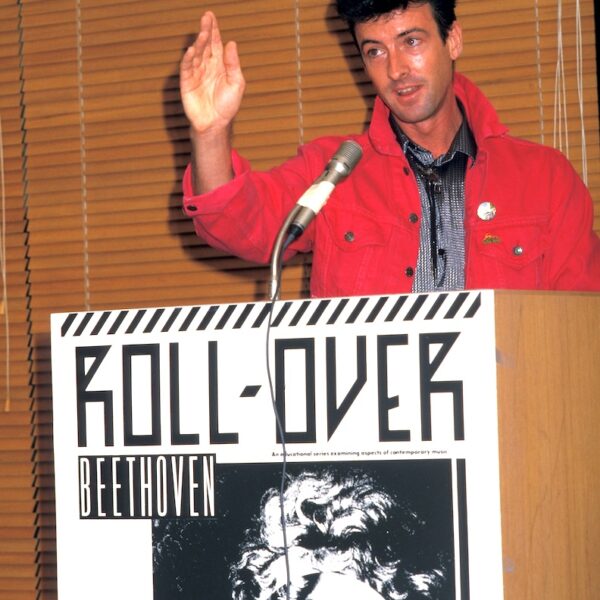
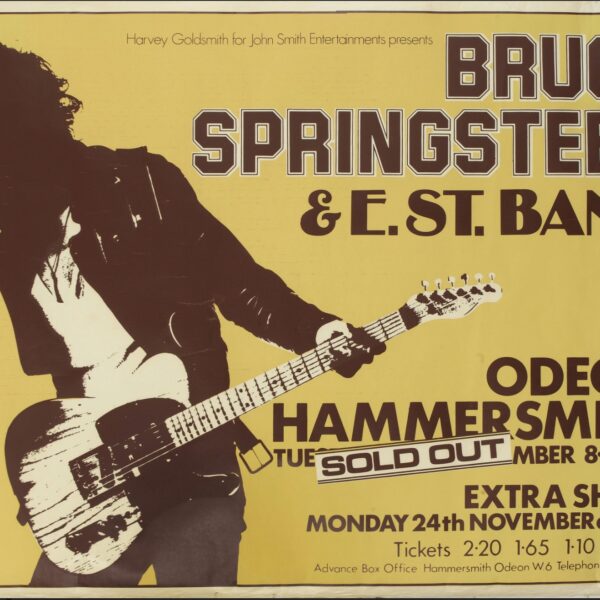
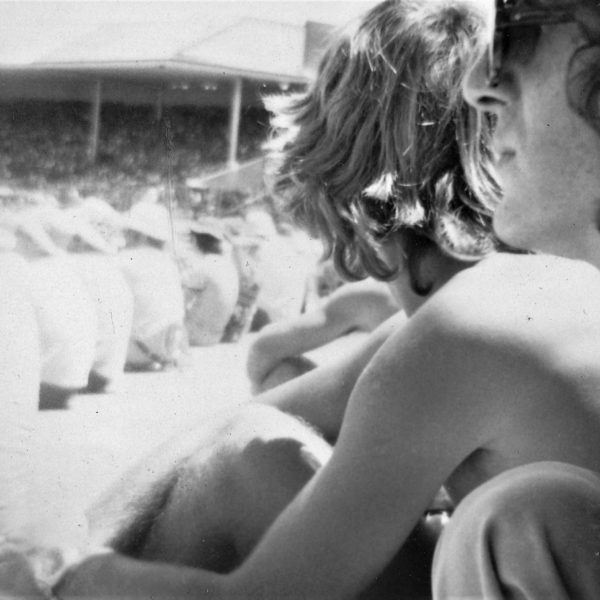
im looking for info about a band called Australia that played the club scene inthe 70s.